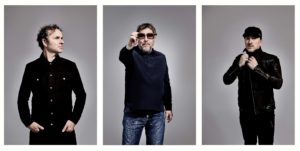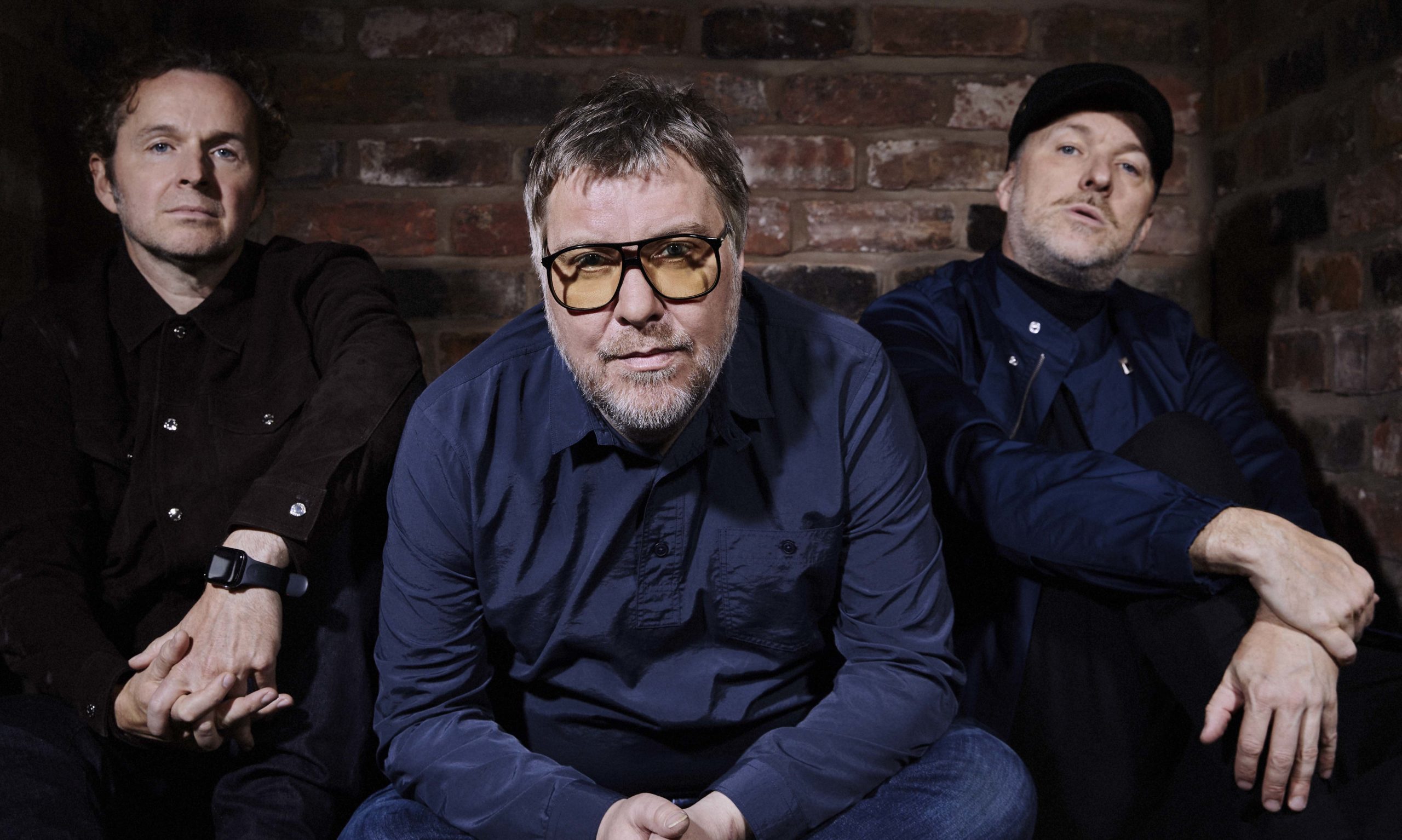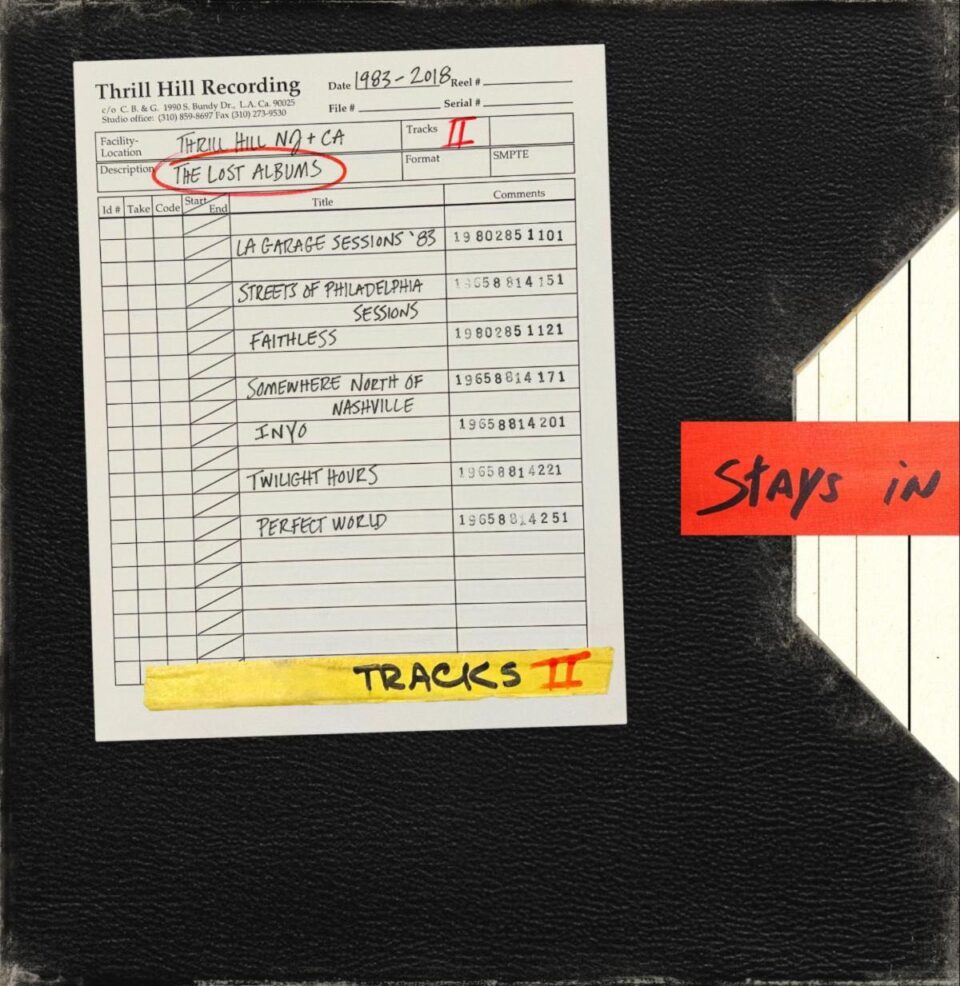“No one thought it would be that long,” recalls Andy Williams, drummer for Doves. “All three of us are constantly working on music. If somebody had told us that after you put out Kingdom of Rust you won’t be putting another album out for eleven years we would have probably been quite crestfallen, really. But life is a weird old thing, innit?”
When Doves released their last LP, Drake had barely dropped his first mixtape, the world, rather ironically, was stumbling through the Swine flu pandemic, and each member of the band was still on the backside of thirty. In February, just before the world went into lockdown, Andy and his twin brother Jez celebrated their fiftieth birthdays at a local pub with a handful of family and close friends. It was a surprise party thrown by their respective significant others and third Dove Jimi Goodwin, who would turn fifty a few months later. “The shock almost killed us off,” Andy remembers, laughing.
Although the band had reunited to play a few shows in 2019, most of the world was unaware they’d been holed up in a studio trading melodies and rediscovering old tunes in the hopes of releasing what would be their fifth album. No label pressure, no outside influence. Just three best friends with 35 years of history between them having a laugh and making beautiful noise. “We’ve done it since we were kids. We realized we still had that chemistry.”
The buzz surrounding The Universal Want—and the expectations of greatness from music critics old enough to remember the NME cover that lazily and inaccurately proclaimed them “The New Radiohead”—is major, and deservedly so. Their breakout debut, Lost Souls, was shortlisted for the U.K.’s Mercury Music Prize back in 2000, and proved from the start that Doves deserved a place within the pantheon of interminable British rock bands. From the ethereal and delicate “Break Me Gently,” to the triumphant, slow-train march of “The Cedar Room,” they effortlessly ran the gamut of moods, with singer/bassist Jimi Goodwin’s vagabond soul providing maudlin yet beautiful narration.
While they did formally announce their hiatus in 2010, the band never broke up, nor did they have any high-profile dust-ups or fallouts over the course of their career. Jimi released a solo album in 2014, while Andy and Jez put out a record as Black Rivers in 2015. Both were fine outings that highlighted the differences, not necessarily the deficiencies, in each faction’s songwriting, but the strange, wistful aura that bubbles beneath the surface of every Doves song was noticeably absent. With The Universal Want, they’ve relit the home fires with their strongest total body of work since The Last Broadcast, but more importantly—and almost uncannily—the chemistry from those early sessions managed to tap into universal themes and emotions that feel particularly poignant in the present moment.

“Putting out music does give you a new lease on life,” says Andy. “I think it’s made the bitter pill of turning fifty a bit easier. I’m still doing what I love. Personally speaking, it’s quite cathartic.”
The material on The Universal Want is culled from two main sources: forgotten riffs from older, unfinished material, or elements taken from what would have been sophomore solo albums from both Jimi and the brothers—a blend of foundational DNA and strains of new inspiration. As is always the case with the trio, their creative processes dictated the mixture—more methodical and regimented for Andy and Jez, a bit more freeform and loose for Jimi. Invigorated by fresh energy, songs that were once dead ends had a way out, and newer creations found their legs with ease, relatively speaking.
“I’m always jealous when I hear bands say, ‘Yeah, we were in the studio for about two to three weeks but we busted it out and bang—there’s a classic!’” Andy admits. “We’ve never been like that. We’ve always worked quite methodically, and it has to pass all three of us. If one of us isn’t feeling a song it goes by the wayside. We’re probably too fussy.”
“Putting out music does give you a new lease on life. I think it’s made the bitter pill of turning fifty a bit easier. I’m still doing what I love. Personally speaking, it’s quite cathartic.”
The standout opener “Carousels,” propelled by a Tony Allen drum fill sample, is signature Doves brilliance, and immediately blasts the album into the jet stream. From there, it’s end-to-end magic. “Broken Eyes,” a song Andy describes as a nod to The Kinks and ’60s British rock, is another standout, and features a tiny, midrange lick so potent you could bottle it up and sell it on the street corner. Once you stumble into the haunting harmonies of “Cathedrals of the Mind,” you begin to decipher your surroundings. It’s an emotional valley that won’t be unfamiliar to Doves fans; a place where triumph, misery, hope, and eventual liberation all feel equally comfortable. “Old friend it’s been a while / We’re just prisoners of this life,” Jimi sings on “Prisoners.” It’s a fitting lyric to accompany a tragic, broken year where it feels like the only way for life to grow back is to burn everything down, start again, and never look back.
“All three of us struggle with life—one thing or another, as most people do—but we do feel a certain liberation through our music, and that’s a real sanctuary for us,” says Williams. “We like to register our struggles, but at the end of the day we want our music to be a positive force. The stuff that we love and grew up with is quite cathartic music, and what’s what we’re trying to attempt to do ourselves.” FL









